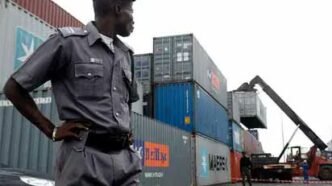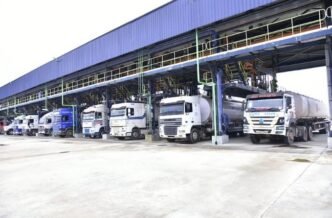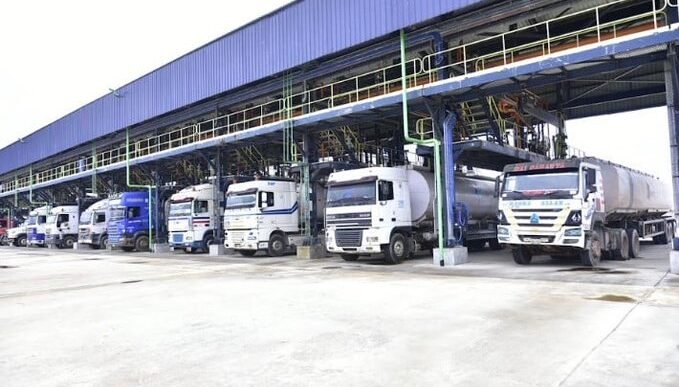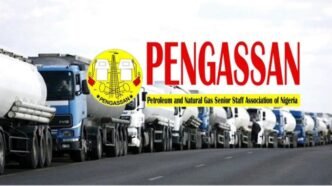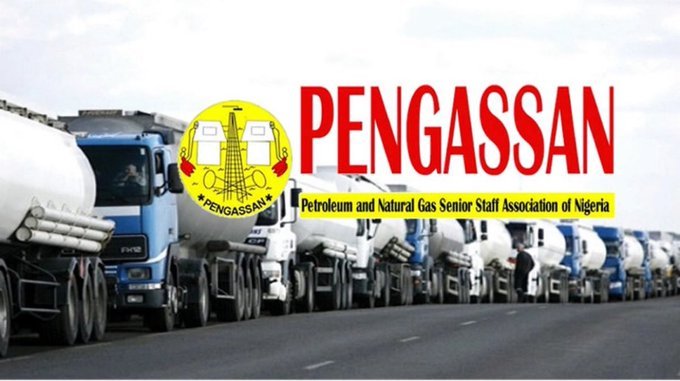In a major policy shift aimed at boosting Nigeria’s struggling industrial base, the Nigeria Customs Service (NCS) has announced significant relief measures that exempt raw materials, spare parts, and specific machinery from the payment of the four per cent Free on Board (FOB) levy. The announcement, made in Abuja on Friday, has been welcomed by manufacturers, economists, and industry stakeholders who have long complained about high import costs and policy inconsistencies that stifle productivity.
The development comes at a time when Nigeria is grappling with rising inflation, foreign exchange scarcity, and dwindling manufacturing capacity. Industry experts believe the exemption will reduce production costs, encourage local value addition, and position Nigerian manufacturers to compete better both locally and internationally.
Background of the Policy
The FOB levy has been a longstanding burden on importers of industrial inputs, especially manufacturers who rely heavily on imported raw materials and spare parts due to weak domestic supply chains. Under the levy, importers were mandated to pay four per cent of the value of their imports as calculated on the Free on Board basis, a cost that often translated into higher production expenses and ultimately, increased prices of goods.
For years, manufacturers’ associations, including the Manufacturers Association of Nigeria (MAN) and the Lagos Chamber of Commerce and Industry (LCCI), have pushed for reforms in the import levy regime, insisting that continued taxation on industrial inputs discouraged growth in the sector. The NCS’s decision marks a significant concession to these demands.
Customs Service Explains Decision
Speaking at a press briefing, the Comptroller-General of Customs emphasized that the exemption was designed to stimulate industrial growth, create jobs, and support the government’s broader economic diversification agenda.
“This measure is part of our commitment to creating a business-friendly environment, reducing the cost of doing business, and enabling our manufacturing sector to thrive,” he said. “We recognize that local industries need access to affordable raw materials and machinery to be competitive, especially at this challenging time for our economy.”
He added that the policy aligns with President Bola Tinubu’s economic reform initiatives, which prioritize industrialization, local content development, and job creation.
Relief for Manufacturers
Manufacturers across the country have greeted the announcement with optimism. The exemption is expected to ease one of their most persistent complaints: the high cost of importing production inputs.
According to the Director-General of MAN, the policy is a “welcome intervention” that will directly reduce costs for factories already battling with high energy expenses, foreign exchange volatility, and limited access to credit.
“This is the type of practical support we have been asking for,” he said. “The removal of the four per cent levy on raw materials, machinery, and spare parts means our members can channel those savings into production, innovation, and expansion. Ultimately, this will make Nigerian goods more competitive both at home and abroad.”
Economic Implications
Analysts argue that the Customs Service’s decision could have a ripple effect across the economy. By reducing production costs, the exemption is likely to lower prices of locally produced goods, making them more attractive to consumers and reducing reliance on imported finished products.
Furthermore, the policy may attract new investments into the manufacturing sector, which has been in decline for over a decade due to infrastructure deficits, policy inconsistency, and rising input costs. Lower barriers for manufacturers could also help stabilize supply chains in critical sectors such as agriculture, pharmaceuticals, and automotive assembly.
Dr. Tunde Adebayo, an economist at the University of Lagos, said the move was long overdue.
“For years, we have been taxing manufacturers into extinction,” he explained. “Exempting raw materials and machinery from the FOB levy is not just a relief, it is a strategic step toward industrial revival. If sustained and combined with other reforms, Nigeria could see a significant rebound in manufacturing output within the next five years.”
Key Sectors to Benefit
- Pharmaceuticals – The industry, which relies on imported active ingredients and equipment, will see reduced costs, potentially making medicines more affordable.
- Automotive – Car assembly plants often struggle with sourcing spare parts. The exemption will reduce costs and enhance local vehicle assembly operations.
- Agro-processing – The food and beverages sector, which imports specialized machinery and additives, will benefit from reduced import costs, encouraging more value addition to agricultural produce.
- Textiles and Apparel – The exemption may revive interest in textile mills, which have struggled to compete with cheap imports due to high input costs.
Challenges and Considerations
While the exemption is being celebrated, experts caution that it must be implemented transparently to avoid abuse. Past government waivers and exemptions have sometimes been hijacked by middlemen and rent-seekers, leaving genuine manufacturers with little benefit.
There are also concerns about the impact on government revenue. The FOB levy has historically contributed to Customs earnings, and its removal could create a short-term revenue gap. However, Customs officials argue that the long-term benefits of increased industrial productivity and expanded tax revenue from thriving businesses will offset the loss.
Stakeholders React
Reactions have poured in from various quarters:
- Lagos Chamber of Commerce and Industry (LCCI): Described the move as a “game changer” that aligns with Nigeria’s industrialization goals.
- Small and Medium Enterprises (SMEs): Many SME owners expressed hope that the policy would trickle down to smaller manufacturers, not just large corporations.
- Labour Unions: The Nigeria Labour Congress (NLC) called on the government to ensure the relief leads to job creation and not just increased profits for companies.
The Road Ahead
Policy experts insist that the Customs exemption should be part of a broader industrial policy reform. Without improvements in power supply, logistics, and infrastructure, the benefits may not be fully realized.
Nigeria’s manufacturing contribution to GDP has hovered between 7–9 per cent for over a decade, a figure economists describe as “abysmally low” for Africa’s largest economy. If well implemented, the Customs relief could push this figure upward, making manufacturing a key driver of growth alongside oil and services.
Conclusion
The Nigeria Customs Service’s decision to exempt raw materials, spare parts, and certain machinery from the four per cent Free on Board levy is a landmark policy shift with far-reaching implications. It offers a lifeline to struggling manufacturers, promises to boost local production, and aligns with national goals of diversifying the economy.
While challenges remain in implementation and monitoring, the policy has already injected renewed hope into the manufacturing sector and could mark the beginning of a new era of industrial growth in Nigeria.
For now, stakeholders across industries are watching closely to see how quickly the relief filters into real-world impact—lower production costs, more jobs, and ultimately, more affordable goods for Nigerians.

